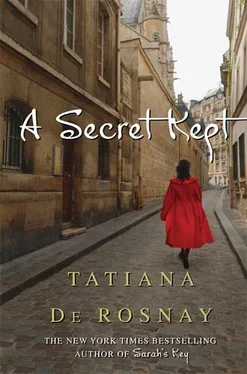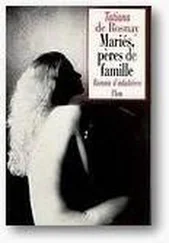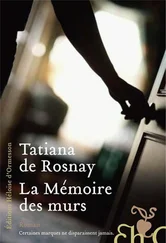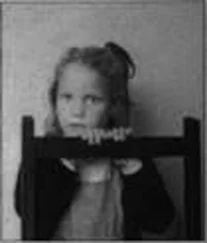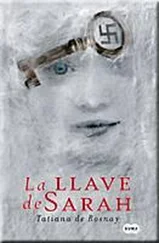Love you and love you and love you.

Mélanie had slept well and late. Her eyes were puffy, he noticed, but her face was glowing, smoothed out by a good night’s rest and pink from yesterday’s sun. He decided not to tell her about Bernadette. Why mention that conversation? It was useless. It would pain her, as it had pained him. She had breakfast in peaceful silence while he read the local newspaper and drank fresh coffee. The weather was going to hold, he announced. She smiled.
“I slept like a log,” she said, putting her napkin down. “That hasn’t happened for a long time. How about you?”
“Slept very well,” he lied. For some reason he didn’t want to tell her that he had been kept awake just thinking about their last summer here. Again and again, images from the past had imprinted themselves upon his closed eyelids.
A young woman and her small boy came in and sat at a nearby table. The child’s voice was whiny and high, his entire being hermetically closed to his mother’s admonishing.
“Aren’t you glad your kids are over that age?” Mélanie whispered.
He raised his eyebrows. “At the moment, I feel like my children are strangers.”
“What do you mean?”
“They have their own separate lives I know nothing about. When they come and spend time with me, they are either in front of the computer or the TV or sending text messages.”
“I can’t believe that,” she said.
“It’s true. We meet at meals, and these take place in silence. Sometimes Margaux even comes to the table with her iPod. Thank God Lucas isn’t at that stage yet. But he soon will be.”
Mélanie stared at him.
“Why don’t you tell her to stop it? Why don’t you get Arno and Margaux to talk to you?”
He looked across the table at his sister. What could he tell her? What did she know about kids, and teenagers in particular? Their silences, their outbursts, their inner rage? How could he tell her that sometimes he felt his children’s contempt so harshly it made him recoil?
“You have to get them to respect you, Antoine.”
Respect. Oh yes, and how he had respected his father as a teenager. How he had never crossed the line. Never rebelled. Never shouted back. Never slammed a door.
“I think that what they are going through is healthy and normal,” he mumbled. “It’s normal to be rude and difficult at that age. It has to come out.”
She said nothing, sipping her tea. He continued, his face a trifle redder. The little boy at the next table went on bawling.
“What is difficult is that I have to face all this alone. Without Astrid. It all happened so suddenly. Overnight. They are your children, but they are strangers. And you know nothing about their lives, who they see, where they go.”
“How is that possible?”
“Because of the Internet, because of mobile phones. When we were that age, our friends had to call home, talk to Father or Régine, ask to speak to us. That’s finished. Now you don’t know who your kid is seeing. You never speak to their friends directly.”
“Unless they bring them home.”
“Which they don’t always do.”
The little boy had at last stopped whining and was busy munching a croissant the size of his plate.
“Does Margaux still see Pauline?” asked Mélanie.
“Yes, of course. But Pauline is the exception. They’ve been in the same school since they were six years old. You wouldn’t recognize Pauline.”
“Why?”
“Pauline has the figure of Marilyn Monroe.”
“Are you kidding? Skinny little Pauline with her buck teeth and freckles?”
“The very same skinny little Pauline.”
“My God,” said Mélanie, awed. Then she put out her hand and patted his gently. “You’re doing fine, Antoine. I’m proud of you. Must be a heck of a job raising two teenagers.”
He felt his eyes going wet. He hurriedly stood up.
“What about a morning dip?” He smiled down at her.
After their swim and, later, lunch, Mélanie went up to her room to finish reading a manuscript and Antoine decided to go rest in the shade. The heat was less fierce than he had expected, but he would probably end up in the pool at one point, he guessed. He installed himself on the terrace in a wooden deck chair beneath the large parasol and tried to read a couple of pages of a novel Mélanie had given him. One of her star authors-a brash young man, barely twenty, with peroxide hair and an attitude. Antoine’s interest soon waned.
Around the pool, families came and went. It was far more amusing watching them. There were a couple of forty-year-olds who could have been Astrid and him, he mused. The guy was in fine shape, tight abdomen and muscular arms, but she was not as good, running to fat. Their two teenagers were the exact replica of his. The girl had a perpetual moue, earphones screwed in tight, and black nail polish. The boy, younger, more like Lucas, he decided, was enthralled by a Nintendo. When their parents spoke to them, they were answered by shrugs and grunts. Welcome to the club, thought Antoine. But at least this couple were in it together. They were a team. They could deal with the oncoming storms. He had to face the storms alone.
When was the last time he had a conversation with Astrid about their kids? He couldn’t remember. And what were they like with her, with Serge? Were they just as bad? Worse? Better? How did she cope with it? Did she ever lose her temper? Scream back? And what about Serge? How did he deal with three children who weren’t even his own?
Antoine noticed another family, younger, with their toddlers. Late twenties, early thirties, two small children. The mother sat with the little girl on the grass, patiently helping her daughter to put a large plastic puzzle together. Every time the girl got it right, her mother clapped and cooed. He used to do that too, he remembered. That blissful period when children were small and sweet. You could hug them and tickle them. Play hide-and-seek. Play the monster. Run after them, scoop them up in your arms, swing them over your shoulder. Their shrieks and screams in your ears. You could sing them to sleep and gaze at them for hours, marveling at the perfection of their features.
He watched the father giving the baby a bottle, cautiously tying the bib, fitting the rubber nipple into his son’s mouth. He felt overwhelmed by sadness, for what was gone and no longer, for a cherished time in his life when Astrid and he were still going strong, when he enjoyed his job, felt he was doing well, felt at peace with himself, felt young. He remembered walking through Malakoff with his family on Sunday mornings at the market, Lucas still in the stroller pushed by Astrid, and the other two sauntering along, their hot, sticky hands in his. The neighbors, the shopkeepers would wave and nod. He had felt so proud. So secure in his own world. As if nothing could ever destroy it. As if nothing would ever change.
When did it all start? He hadn’t seen it coming. And if he had, if he had been warned, would it have made all this easier? Was this about growing old? Was this what was in store for him now? He felt he could no longer bear the sight of the happy little family that reminded him of his past, so he got up, sucked in his stomach, and slithered down into the pool. The cool water did him good, and he swam laps for a while, till his arms and legs ached and he felt breathless. He went back to his chair and spread his towel over the lawn.
The sun beat down on him, fierce and strong. Just what he needed. The intoxicating smell of roses floated over to his nostrils, and with a pang he remembered having afternoon tea with his grandparents on this very lawn, by the roses. He recalled the slim, spongy madeleines he would dip into his milky Darjeeling, the acrid smoke from his grandfather’s cigarette, his grandmother’s velvety, soprano-like intonations, his aunt’s abrupt, hoarse laughter. And he remembered his mother and her smile, and the way her eyes lit up when she looked at her children.
Читать дальше
